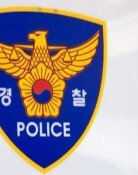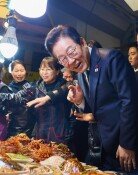US Changes Nuke Negotiating Tactics With NK
US Changes Nuke Negotiating Tactics With NK
Posted September. 15, 2009 07:40,
The United States plans bilateral talks with North Korea for the first time since President Barack Obamas inauguration.
Observers say the situation is similar to that of 2002, when the two governments spoke after North Koreas second nuclear crisis erupted. The Obama administration, however, has ruled out following the negotiating pattern of former Assistant Secretary of State Christopher Hill, who served as chief U.S. representative to the six-party nuclear talks under the previous administration.
The new U.S. special envoy to North Korea, Stephen Bosworth, has a comprehensive approach to negotiations. He plans to create a detailed roadmap that includes the date when North Korea agrees to scrap its nuclear program.
Bosworth changed Washingtons approach in negotiating with Pyongyang based on the understanding that the U.S. should not follow patterns under which it negotiated details after announcing a joint statement with North Korea in 2005
His approach also reflects his displeasure over Hills approach to North Korea. Since Hill was often given the right of discretion from then Secretary of State Condoleezza Rice, he negotiated with Pyongyang behind the scenes and later encouraged other members to the six-way talks to confirm such negotiations.
This approach was useful when North Korea chose to snub the six-party talks, but the agreements were denied by Pyongyang when it had a conflict of interest with Washington.
A high-ranking South Korean official said, Based on the reflection that Hills former negotiating patterns were ineffective, Bosworth will prefer not to hold bilateral talks with North Korea. Instead, he will ask North Korea to participate in the six-party talks and negotiate with other members.
When Hill held negotiations with North Korea shortly after its first nuclear test in October 2006, he failed to effectively deal with issues on North Koreas nuclear weapons but nonetheless had sanctions on the Stalinist country lifted at its request.
Similarly, he reached an agreement with Pyongyang in 2007 to suggest concrete measures to add to the 2005 joint announcement. The 2007 agreement, however, did not contain the words nuclear weapons.
On the other hand, Bosworth wants the U.S. to keep imposing sanctions on North Korea unless it destroys its nuclear weapons. In short, he wants to cooperate with members of the six-party talks to negotiate with Pyongyang while using both dialogue and sanctions.
spear@donga.com



![“이 과일은 씨 먹으면 안돼요”…체내서 독성물질 내뿜는다[알쓸톡]](https://dimg.donga.com/c/138/175/90/1/wps/NEWS/IMAGE/2025/12/23/133023688.3.png)



